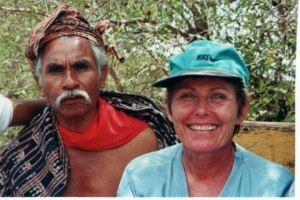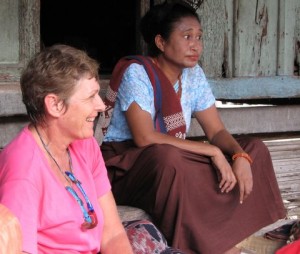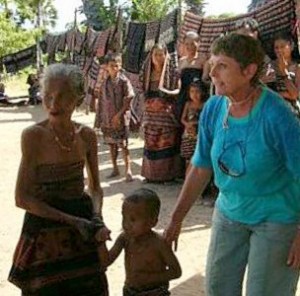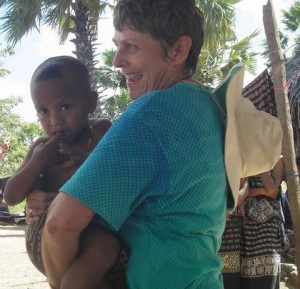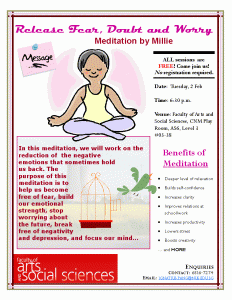By Priscilla Ann Vincent, South Asian Studies, Year 2
Uncertainty – is the word which summarises the start of my NUS Overseas Colleges (NOC) internship.
On 4 June 2009, Mr Rajesh Bhat, the director of The Rural Edge (the social entrepreneurship project where I did my internship), called me from the state of Karnataka, India. He asked if I was ready for hard work and the challenge of living in rural India. He gave me only an hour to accept the internship offer. Not knowing much about the project or what rural meant, I pleaded for him to give me a day or two to decide.
The Rural Edge project, in collaboration with Non-Governmental Organisations (NGO), Samuha and Foundation for Life, aims to bring Business Process Outsourcing (BPO) into rural India. Firstly, villagers with little or no education are trained in basic English, Mathematics, Computing, Logical and BPO work, specific skills like invoice processing and new application processing. The second part of this rural development project is to equip these villagers with BPO jobs in the village. The project is based in a village called Kanakagiri, in a rural part of Karnataka, about 10 hours away by road from the city of Bangalore.
I was still unsure. The project website I was told to refer to did not answer all my questions. How rural is rural? Is there electricity? Was the water safe to drink? Was there any internet access? Where will I be staying? What would my job entail? Most importantly will I survive? But being presented with a fulfilling and one of a kind work experience, I decided to accept the offer. After all, I am young and should be able to face the challenges.
The first two weeks were especially hard. I had to get used to the hot and dry weather, distasteful water, spicy food, a concrete bed, little or sometimes no electricity at all and daily cold baths. I worked from 7am to 9pm daily. Furthermore, the working environment was chaotic. Meetings went on and on without an agenda. Consensus to the best approach to issues could not be achieved. There were no minutes taken at meetings thus resulting in misunderstandings between colleagues on what was to be done and by whom. I had to do something about it. Coming from organised Singapore, I could not allow the project be so inefficient. In such a chaotic environment, there was no way the project was going to reach its target of transforming the lives of 6 million villagers in 12 years. I approached Mr Rajesh Bhat to suggest ways to improve the current situation and was immediately appointed as the chief strategist of the project – an honorable but demanding position.
As the chief strategist, I had to implement a system of daily agendas and minutes of the meetings. I had to advise my colleagues and evaluate their plans before their proposed plans go to the director. As my director was critical, I learned that my plan was not always right and the best work comes out of much debate and discussion.
Together with Shihan (the other intern from NUS), I played a vital role in designing the curriculum for the villagers. The curriculum had to be tailored specifically to the criteria of the hiring BPO companies. We saw our curriculum being used to train the villagers. It was inspiring to see the villagers use the materials created. It was fulfilling to see them enjoy and learn quickly.
The NGO (Samuha) that we were staying at and working in was surrounded by sunflowers and wheat fields. The air was fresh without a tint of pollution and cows and goats graze the dry land. Bullock carts and cow dung were a common sight. People live in small village huts and survive off the land – a humble living experience. I had to wash my clothes on a concrete slab, eat only vegetarian meals for two and a half months, walk three kilometers to the nearby village town to buy provisions and bathe and work in the dark as the electricity supply often went out at night. There was no television or shopping mall. I spent most of my free time enjoying the beauty of the countryside and building strong relationships with the locals. Language was a barrier initially as I had no knowledge of Kannada (the language of Karnataka). However after a month of being taught Kannada by my colleagues, it was easy to strike a conversation with anyone. People in rural India are very welcoming and friendly. I felt safe and secure.
Living and working in rural India was exciting. There are four things that they say you will encounter in Kanakagiri – giant toad, rat, scorpion and snake. A new born rat wriggling on my concrete bed greeted me when I arrived the first day. A month later, I had a rat run across my arm while I was sleeping, an eight-inch scorpion in my room and a giant toad in the common bathroom. Thankfully, there was no encounter with a snake. We were told repeatedly never to walk around or out of the campus at night. With encounters like these, I have become less fearful and am now able to deal with uncomfortable situations easily.
What an amazing journey it was. I was to have returned to Singapore on the 15th of August 2009 but as the project was scheduled to be inaugurated on that very day and not wanting to miss this historic moment, I postponed my return ticket to Singapore. However to my disappointment and dismay, the inauguration of the project was postponed due to the lack of funds. The agreement made by the previous bank manager to issue a loan for the project was revoked by the new bank manger. We had to come up with a contingent plan as the villagers were expecting to start formal training soon. I learned that when working in India, one has to be very flexible and ever ready to emerge from difficult situations. For a project to succeed, one has to be very determined to overcome the many barriers that one would undoubtedly face in India.
NOC’s Experience India is one of a kind. From this experience, one has clearer understanding of the Indian business environment and is able to make vital connections to break into the Indian market. It enabled me to grow mentally, physically and emotionally. It is indeed a total development that is needed for any aspiring entrepreneur of today!
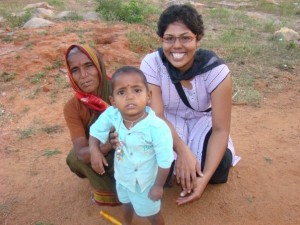
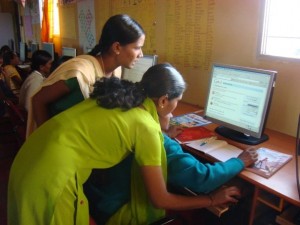
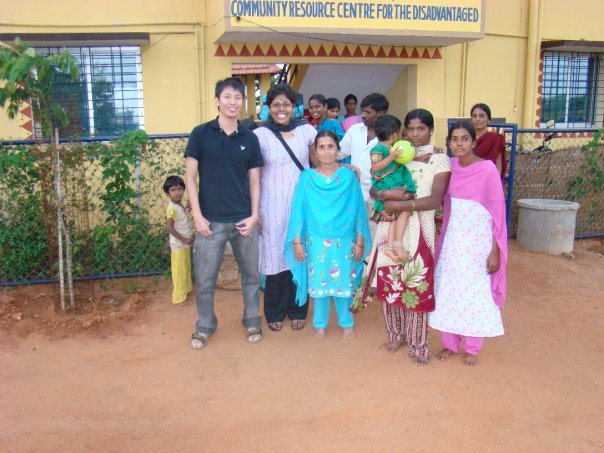
Read more about Priscilla Ann Vincent’s adventures in Straits Times.
